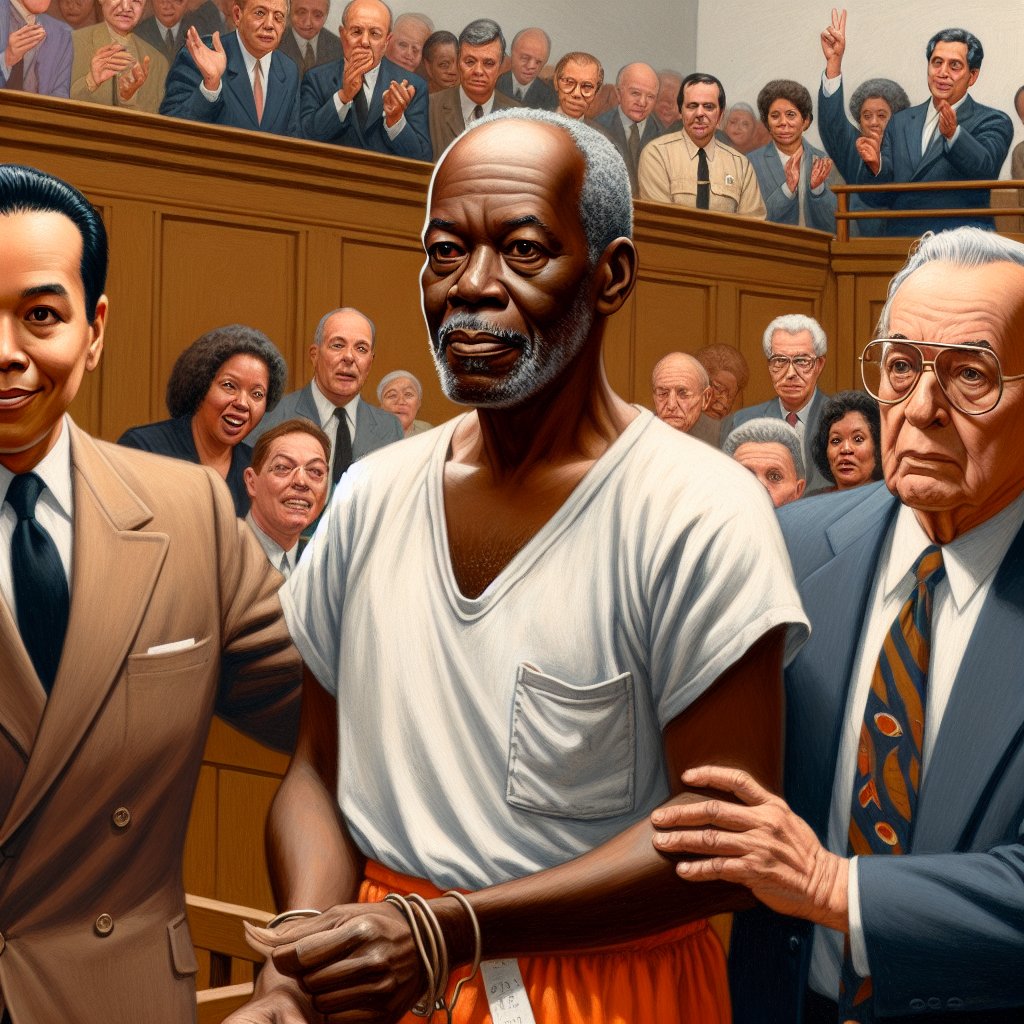Content created by AI
Glynn Simmons Formally Exonerated: A 48-Year Fight for Freedom
In a historic declaration, Oklahoma County District Court Judge Amy Palumbo acknowledged the "actual innocence" of Glynn Simmons, a man who served more than 48 years behind bars for a murder he did not commit. At age 71, Simmons received a verdict he had anticipated for decades, making him the subject of the longest wrongful imprisonment in U.S. history according to The National Registry of Exonerations.
The case dates back to a fateful day in December 1974 when Carolyn Sue Rogers was shot during a robbery at an Edmond liquor store. Simmons, then a young man, was convicted of the murder—a decision now overturned as a gross miscarriage of justice. His fight for exoneration was long and arduous, involving the scrutiny of volumes of evidence by the court.
The decisive factor in his release was the discovery that a crucial police lineup report, that failed to identify Simmons conclusively, had not been disclosed to his defense—a blatant violation of his right to a fair trial. Ultimately, his release from prison earlier this year prefaced the formal declaration of innocence, as Oklahoma County District Attorney Vicki Behenna recognized the inability to establish Simmons' guilt beyond a reasonable doubt.
Joe Norwood and John Coyle, Simmons' attorneys, highlighted the withheld lineup report as critical "innocence evidence," crediting additionally the testimonies of numerous witnesses that placed Simmons in Louisiana at the time of the murder. This ruling is not simply a stamp of freedom; it is a requisite step toward potential restitution for the egregious wrong done to him. Simmons may be entitled to up to $175,000 in state compensation, although realization of these funds remains uncertain and possibly distant.
The gravity of Simmons' journey is underscored by his current reliance on donations and a GoFundMe campaign to sustain himself, particularly in light of his ongoing battle with cancer—another challenge in the aftermath of his incarceration.
The wider implications of Simmons' case resonate amid increasing scrutiny of the U.S. mass incarceration and death penalty systems. With patterns of systemic misconduct and evidence of racial bias prevalent in wrongful convictions, the dynamics of Simmons' case are regrettably not unique. His exoneration serves to reinforce growing awareness and activism against judicial failings.
As the United States grapples with the realities of its justice system, Simmons' case is a stark reminder of the human cost of legal errors and the importance of continued vigilance to safeguard the rights and freedoms of all individuals.










